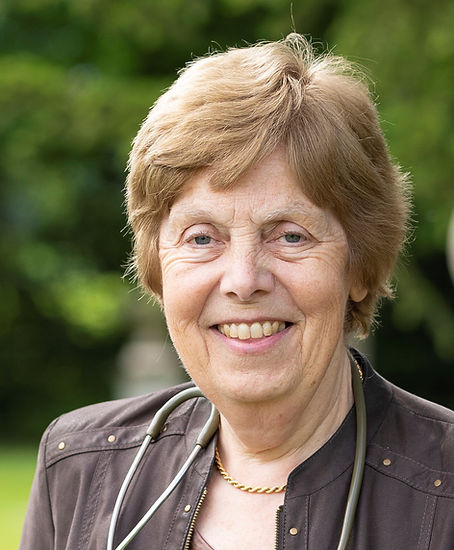I do not consent to generative AI systems scraping text or information from this site
Co-Director of Raparu Consult Community Interest Company
Visiting Professor at the University of Staffordshire and Honorary Professor of Keele University
_JPG.jpg)
Ruth Chambers OBE
Retired GP, Co-Director of Raparu Community Interest Company, Visiting Professor at Staffordshire University and Keele University
I’ve loved being a doctor for the last 50 years; and I think that my patients have appreciated my care for them and their loved ones too! I’ve been motivated to progress along a very diverse and bumpy career path across the NHS as a GP and with academic roles, when apart from some excellent practice, I’ve spotted wrong doing, or sub-standard quality of care - and taken actions. That’s usually worked out well so that I’ve actively contributed to many local and national programmes to improve the delivery of NHS care over the years, captured here in the various chapters of her latest book “Our NHS – for better or worse?”.
Recent Publications

Our NHS offers a candid and insightful look into the evolution of the UK's National Health Service over the past 50 years. Drawing from her personal experiences as a GP and academic, Dr Ruth Chambers combines historical context, medical anecdotes, and stories from fellow healthcare professionals to paint a comprehensive picture of the NHS's journey. The book covers key topics such as gender inequality in healthcare, the rising stress on NHS workers, and the challenges of integrating digital technology into medical care. What sets this book apart is Dr Ruth's ability to blend the personal with the professional.
Her reflections are not just about the system but about the individuals - both patients and staff - who make up the NHS. The stories of challenges faced by GPs in the 1970s compared to modern healthcare give a stark perspective on how much (and how little) has changed. She also offers constructive criticism, highlighting systemic issues such as whistleblowing, obesity, and prison healthcare, all while acknowledging the NHS’s many successes.
This book concludes with 77 ways to Save and Sustain Our NHS.
£9.99 paperback ISBN 9798341298170
Our NHS may be ordered via Amazon (click here)
or the QR code on the right.
All profits from the sale of the book will go to the
Douglas Macmillan Hospice, North Staffordshire.

Stoke Your Success has been written to highlight tha many achievers of Stoke-on-Trent, who have made a difference despite having often difficult beginnings. Ruth hoped to inspire young people, especially, to realise that success is achieved through hard work, and not necessarily from having an easy start in life, nor by being born in a particular place.
Our recent publications in journals have centred on raising awareness of how technology can improve patient care. In particular, we have shown how essential it is to give clinicians the tools and confidence to use technology, and the authority to lead innovative methods of care delivery. Here are a few of our articles:
Projects
I've always been committed to making change happen, particularly in trying to reduce health inequality. I have previously worked to reduce teenage pregnancy, supported refugee doctors to become fully-fledged UK doctors, tried to raise quality in general practices, and my current work has been centred around getting people to look after themselves better. Part of that is to use technology to help. So, rather than simply 'self care', I feel that the way forward is for 'shared care' to empower people, by understanding their medical conditions, and following clinicians' advice, supported by text messages, apps, management plans, video consultations, and social media.
One of the main problems with this has been the lack of confidence of clinicians about using technology in this way. There was a lack of trust in the technology, and also in patients' ability to select reliable information from internet sources.
So there needed to be training of clinicians, and this began with doctors and nurses - the nurses had a pivotal role in the interface between medical teams and patients - and then later on with a wider group of professionals, such as social workers, mental health workers, as well as allied health professionals.
Then, the patients, be they elderly, socially disadvantaged, with physical or mental health problems, refugees, or excluded by being in special needs education, all needed some help with unfamiliar technology. Some were able to adapt with help from a specialised community-focused IT organisation, but there were many who found the sight of a keyboard was enough to deter them, and I had the idea of using Amazon Echo Shows, which required only a voice to control them.







